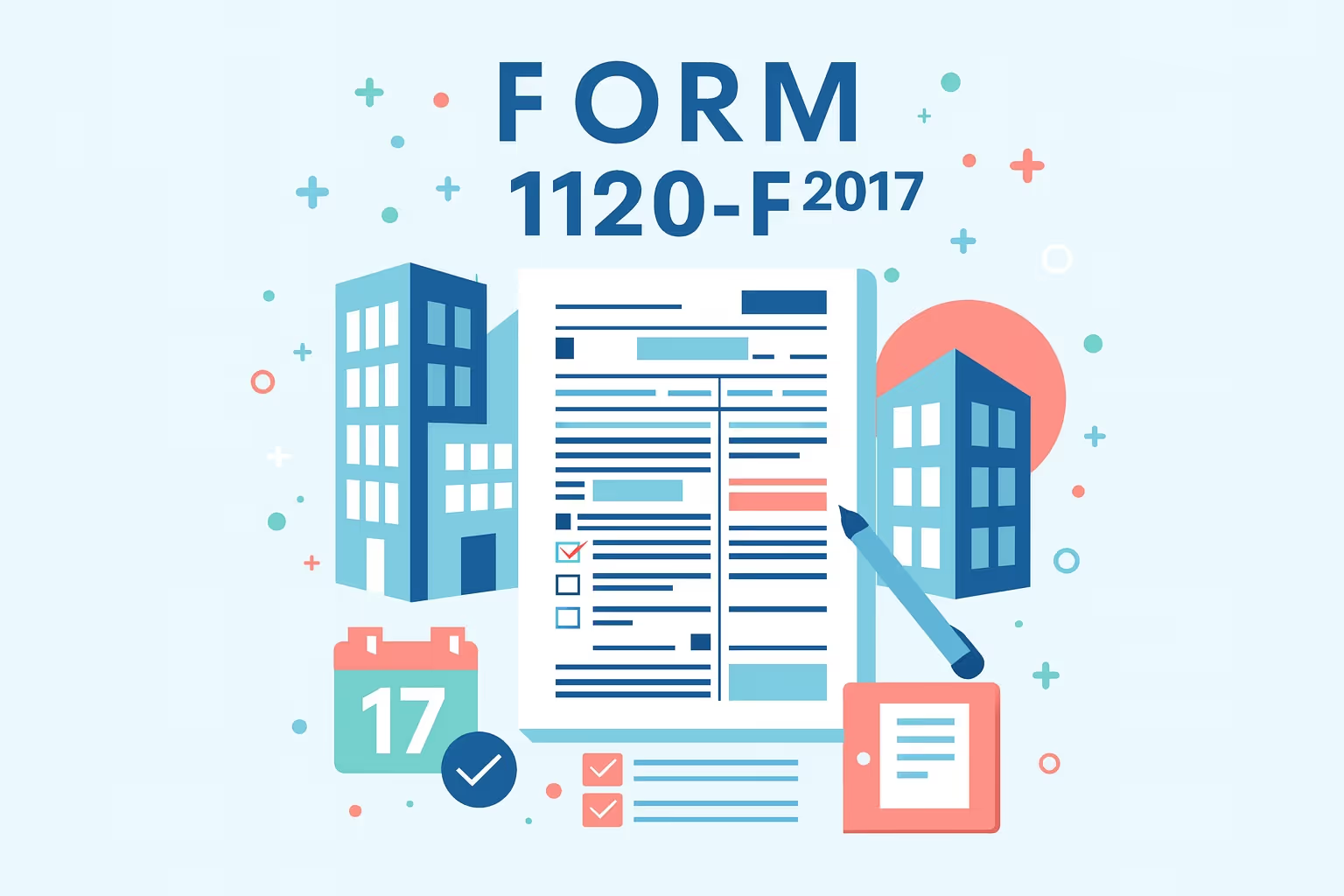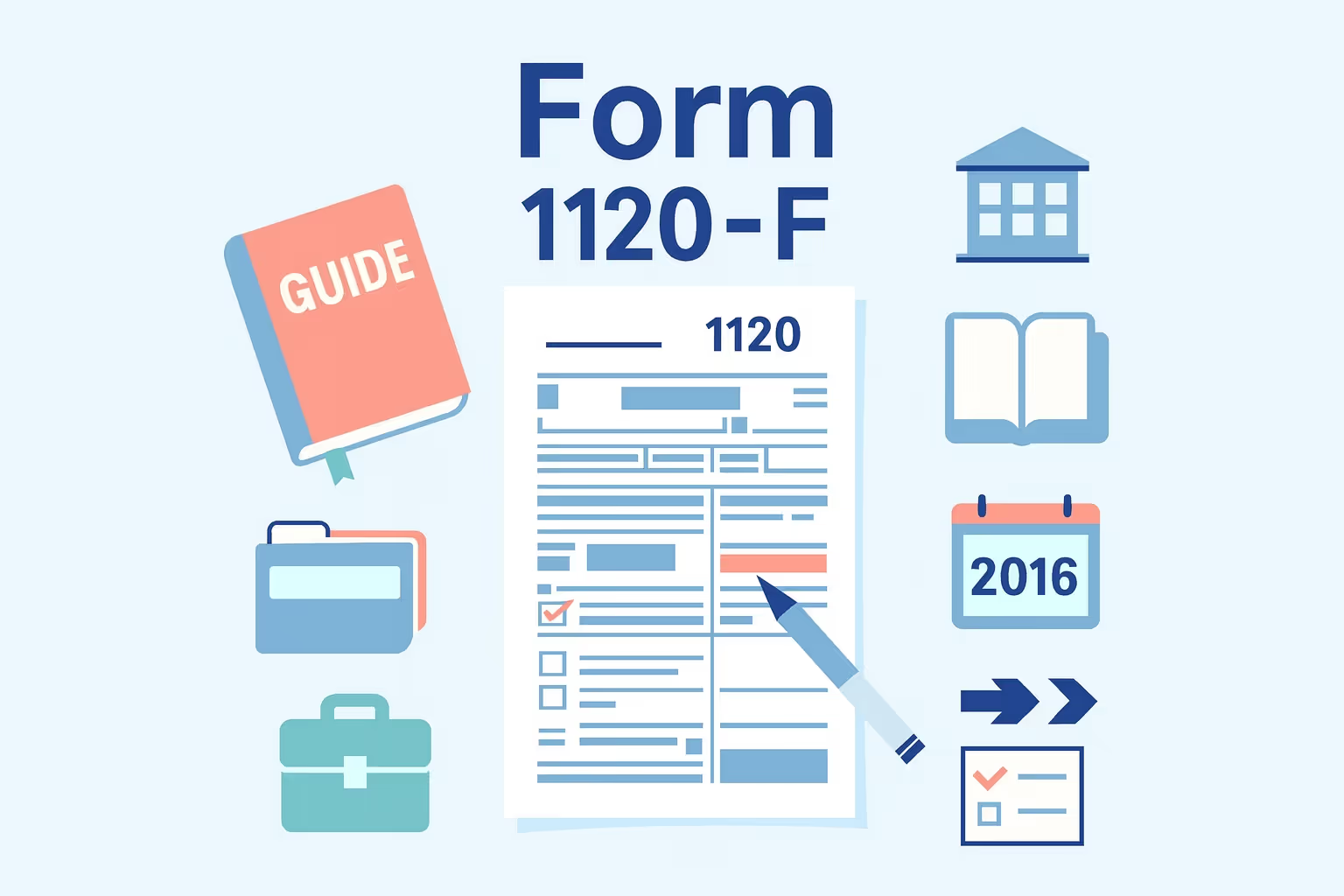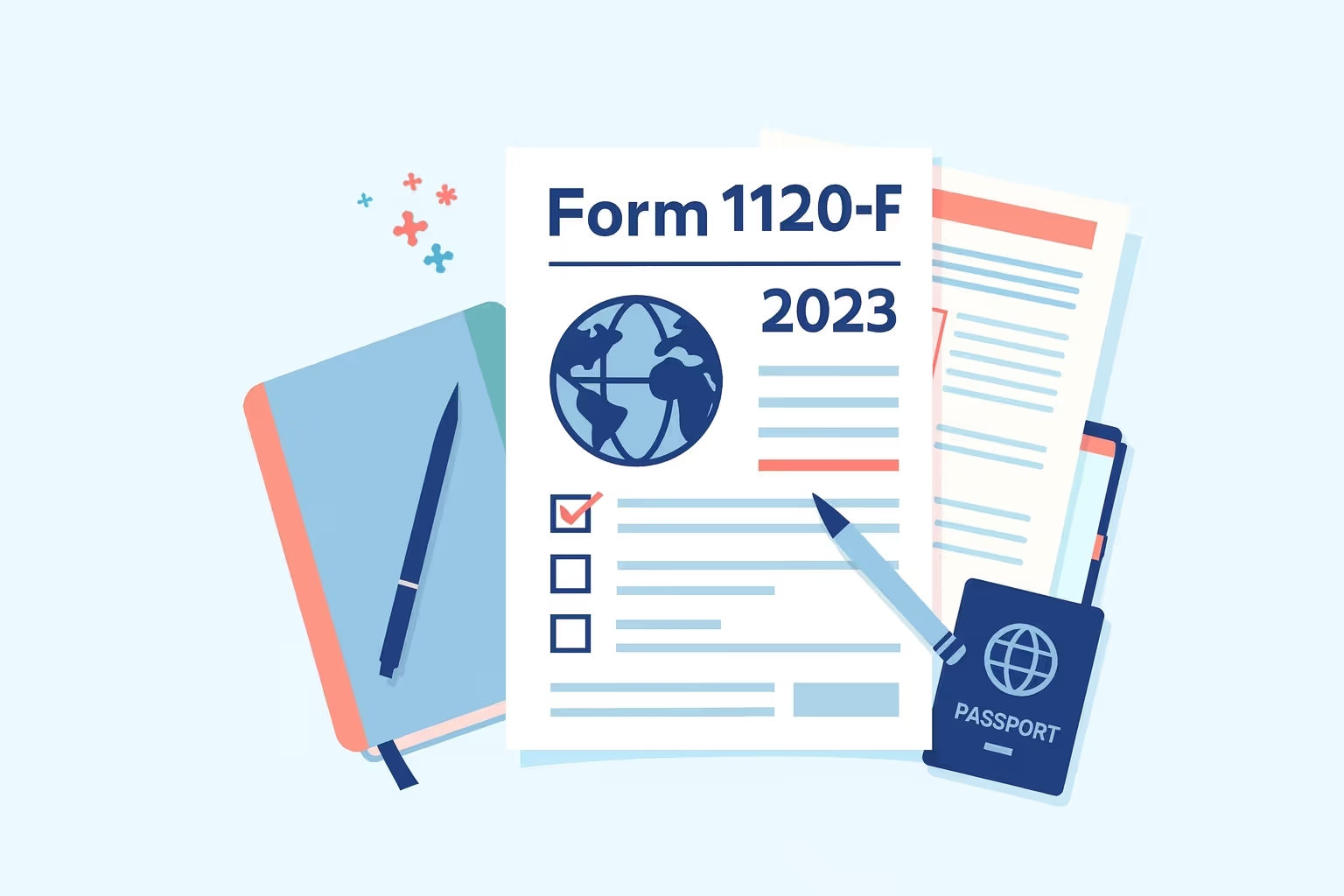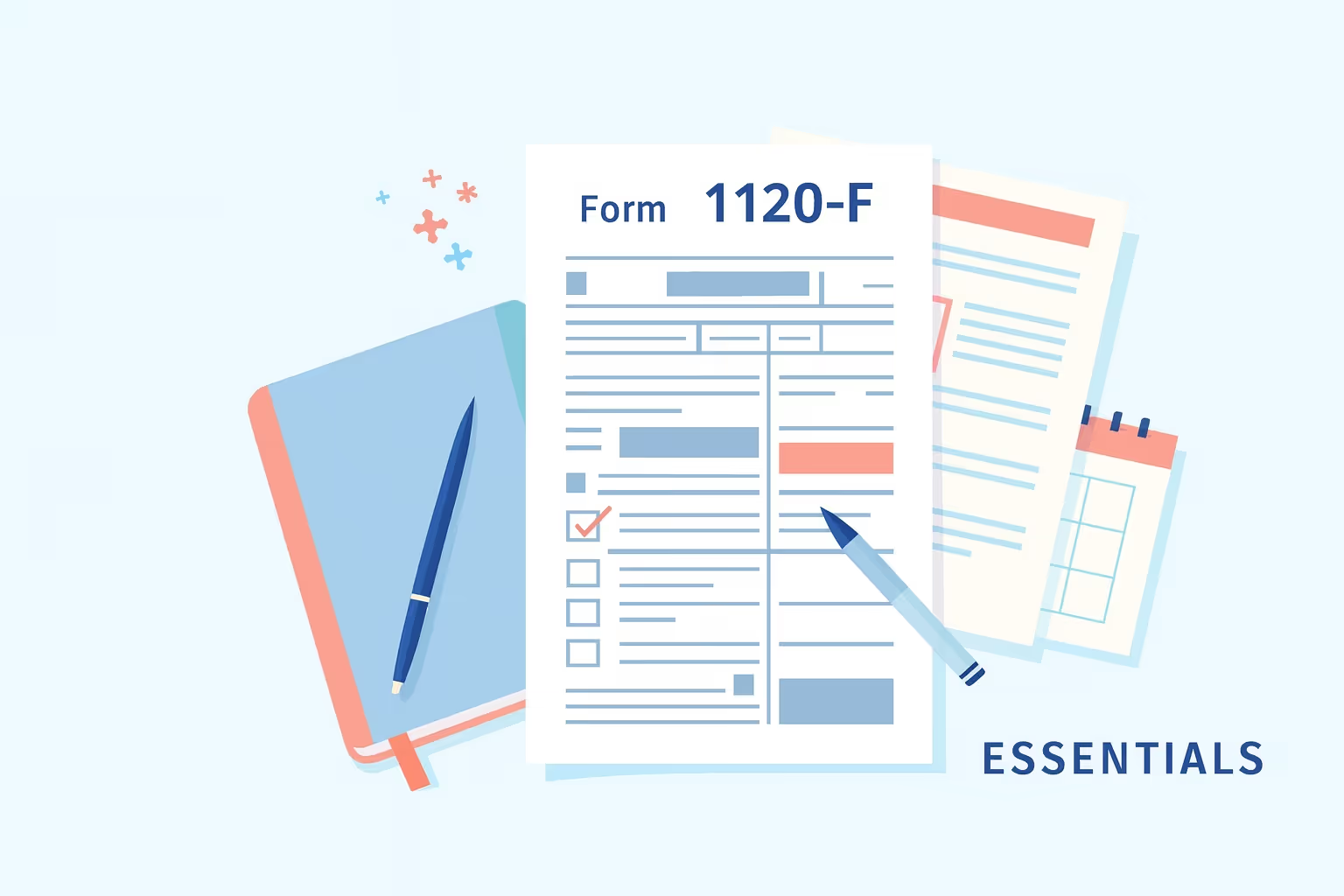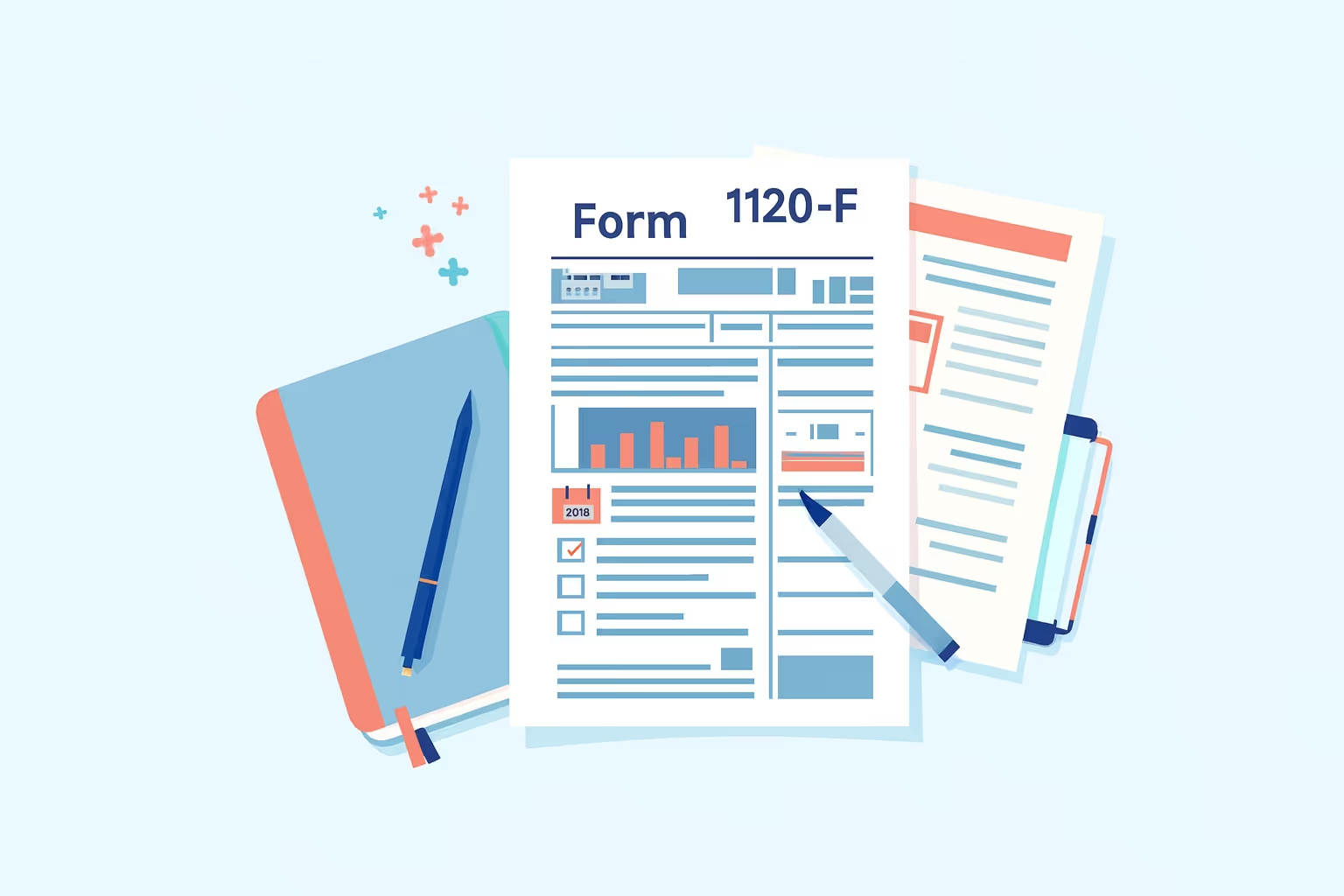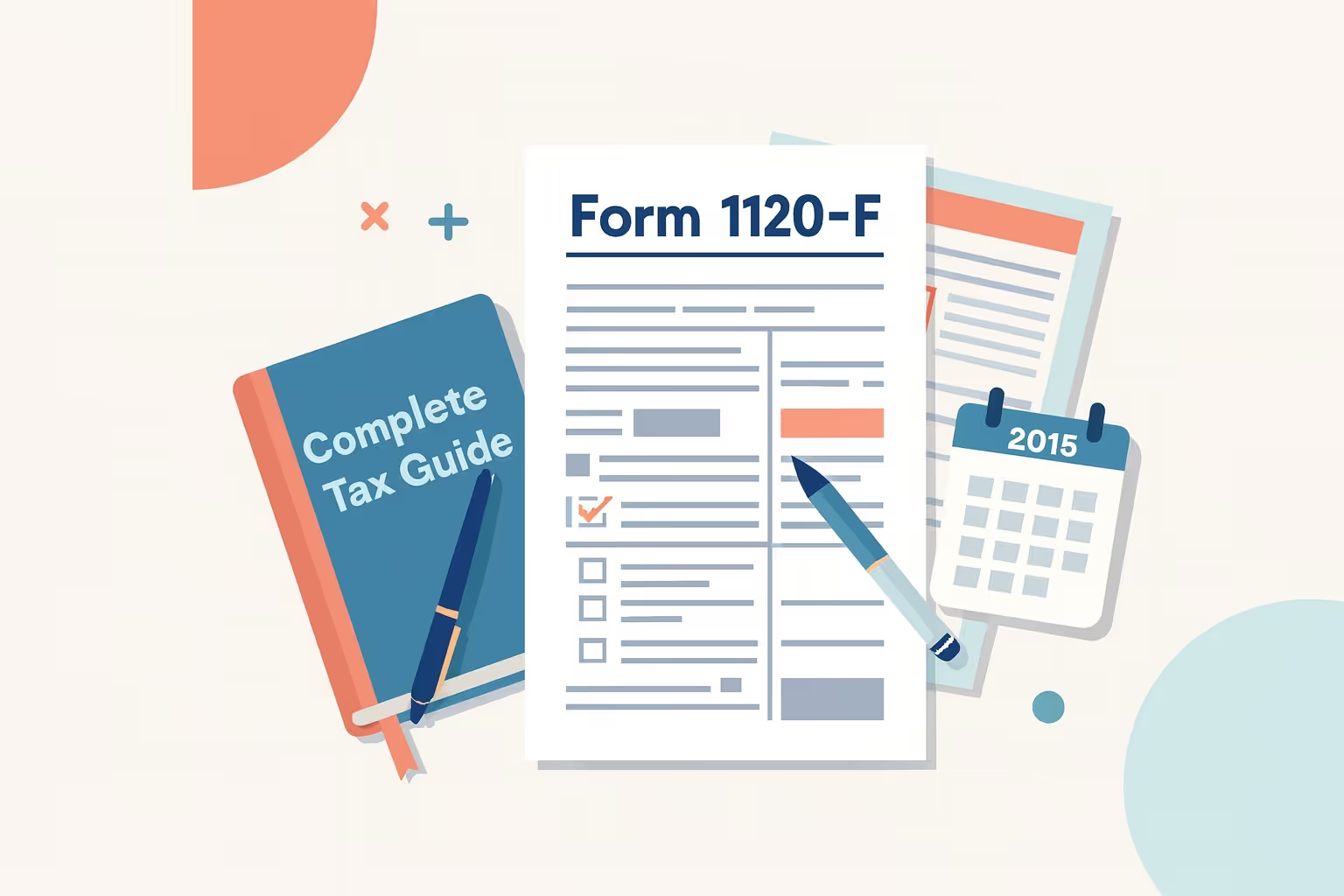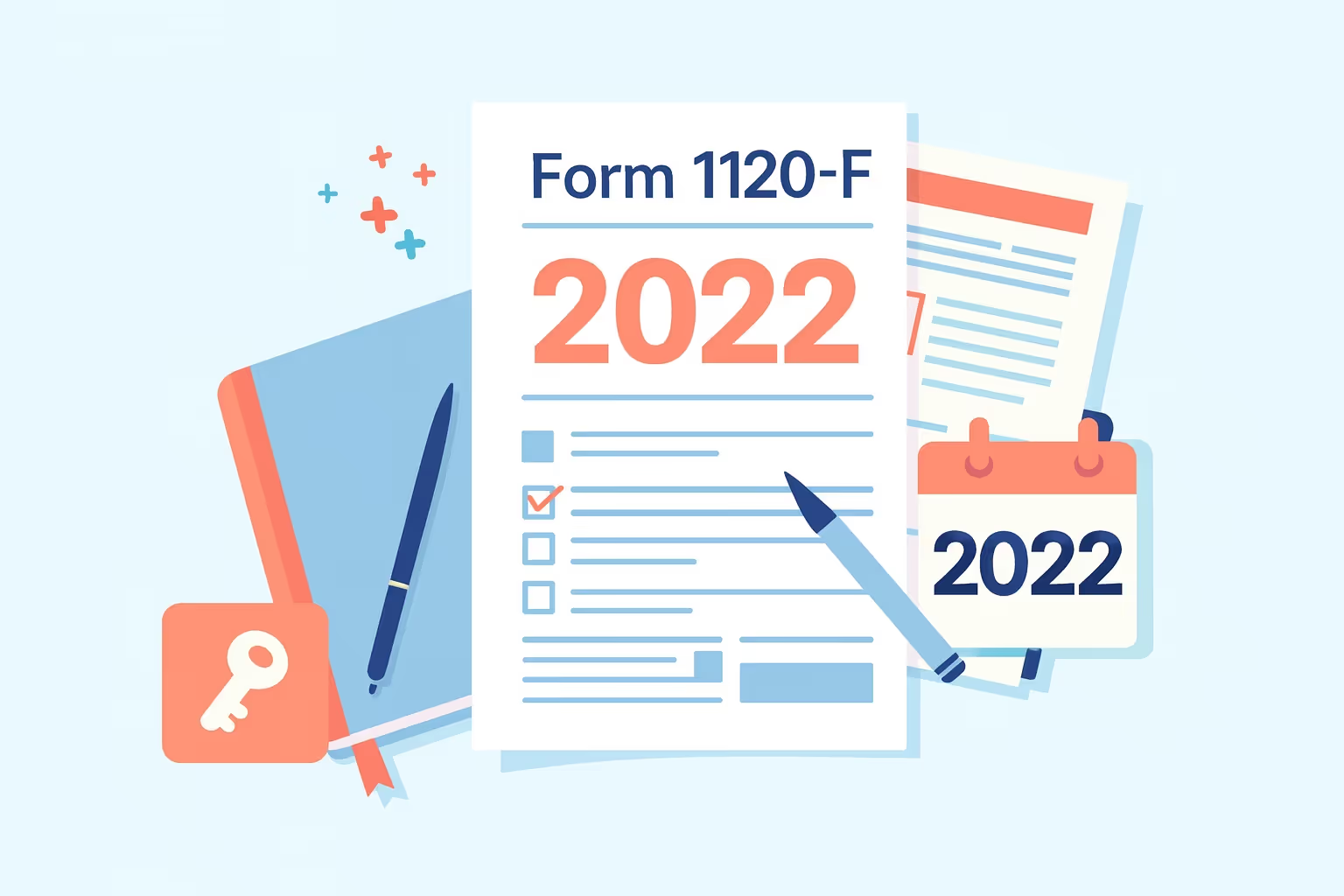
What IRS Form 1120-F (2015) Is For
IRS Form 1120-F (2015) is the U.S. Income Tax Return of a Foreign Corporation used to report income, deductions, and credits related to business activities in the United States. It helps determine the corporation’s income tax liability and ensures compliance with U.S. tax regulations under the Internal Revenue Code.
Foreign corporations must file this income tax return if they conducted a U.S. trade or business, earned U.S. source income, or need to claim deductions under an income tax treaty. The form distinguishes between income effectively connected with U.S. business operations and income that is not effectively connected. Completing this return accurately ensures that taxable income, allowable deductions, and foreign tax credit are appropriately reported to the Internal Revenue Service.
Foreign corporations with outstanding U.S. tax obligations may also qualify for specific relief programs. Learn more in our Business Tax Relief Guide to explore strategies for minimizing tax burdens and managing compliance efficiently.
When You’d Use IRS Form 1120-F (2015)
Foreign corporations use IRS Form 1120-F (2015) in specific filing situations that involve reporting U.S. income or business activity:
- Late filing: A foreign corporation files late when it misses the original deadline but still needs to report its U.S. trade or business income or claim available deductions.
- Amended return: A foreign corporation files an amended return to correct reporting errors, include additional income, or update deductions and credits that were previously reported.
- Protective filing: A protective filing is made when the corporation is uncertain whether its income is effectively connected with a U.S. trade or business. It ensures deduction rights remain preserved if the IRS later classifies the income as taxable.
- Treaty-based filing: A corporation files under an income tax treaty when claiming exemptions or benefits from tax agreements between the United States and its home country.
Key Rules or Details for Tax Year 2015
The 2015 tax year introduced specific filing rules that foreign corporations must follow to remain compliant with IRS requirements:
- ACA Reporting: Employers with 50 or more full-time employees are required to report health coverage information to the IRS using Forms 1094-C and 1095-C.
- Debt income elections: Foreign corporations were allowed to make elections under Section 108(i) of the Internal Revenue Code to defer the recognition of debt income cancellation.
- Filing deadlines: The filing deadline was March 15, 2016, for corporations with a U.S. office, and June 15, 2016, for those without. Eligible corporations could request a six-month extension using Form 7004.
- Deduction rights: A corporation had to file its return within 18 months of the original due date to preserve its right to claim deductions.
- Branch profits tax: This refers to the tax applied to foreign corporations with U.S. branches based on effectively connected income and repatriated earnings.
If your corporation cannot pay the full balance immediately, you may qualify for an IRS Payment Plan using Form 9465. This program allows for flexible monthly payments while maintaining your entity's good standing with the IRS.
Step-by-Step (High Level)
Follow these general steps to complete and file IRS Form 1120-F (2015) correctly:
- Gather records: The corporation should collect all relevant financial documents, including income statements, Forms 1042-S, Schedule K-1s, and other supporting documentation that shows income, deductions, and credits.
- Use the correct form version: The filer must use the official 2015 version of Form 1120-F to ensure compliance with that specific tax year’s rules and reporting requirements.
- Classify income correctly: The corporation should identify which income is effectively connected with U.S. trade or business activities and which is not to ensure accurate tax calculation and reporting.
- Attach required schedules: When claiming treaty-based positions or adjustments, the return must include all necessary schedules, such as Schedule H, Schedule I, and Form 8833.
- Submit the completed return: The corporation should mail the signed Form 1120-F and all attached schedules to the Internal Revenue Service Center at P.O. Box 409101, Ogden, UT 84409.
- Maintain records: The filer must keep copies of all submitted forms, schedules, and proof of mailing for future reference or in case the IRS requests verification.
If you need additional guidance for other business or international forms, visit our IRS Form Help Center for a comprehensive list of form-specific filing resources.
Common Mistakes and How to Avoid Them
Foreign corporations often encounter errors when filing IRS Form 1120-F (2015). Recognizing these issues early helps preserve deduction rights and avoid penalties:
- Not filing a protective return: If uncertain about income classification, file a protective return to safeguard deductions if the IRS determines the income is effectively connected.
- Misclassifying income: Review all business activities carefully to distinguish between effectively connected and non-effectively connected income, thereby preventing inaccurate tax reporting.
- Missing treaty disclosures: Attach Form 8833 whenever claiming tax treaty benefits to ensure compliance with IRS disclosure requirements.
- Failing to meet deadlines: File by March 15 if the corporation maintains a U.S. office or by June 15 if it does not, to prevent the loss of deduction eligibility.
- Submitting Incomplete Amended Returns: When amending a return, include complete explanations and all affected schedules to avoid rejection or processing delays.
- Ignoring penalty exposure: Calculate and pay any unpaid tax promptly, since penalties can accumulate up to 25 percent of the total tax liability.
Missed deadlines or incomplete filings can trigger costly IRS penalties. Corporations may request Penalty Abatement relief based on reasonable cause or first-time filing status to reduce or remove these charges.
What Happens After You File
After submitting IRS Form 1120-F (2015), the Internal Revenue Service reviews the return and confirms receipt through an acknowledgment notice. The IRS may request additional documentation if any part of the return requires clarification. If tax remains unpaid, a penalty of 5 percent per month, up to 25 percent of the outstanding balance, may apply.
Interest also accrues on unpaid amounts until the full payment is made. Corporations unable to pay in full can request an installment agreement using Form 9465 to manage their tax liability while maintaining compliance with IRS requirements.
FAQs
What is effectively connected income on IRS Form 1120-F (2015)?
Effectively connected income refers to income earned by a foreign corporation through activities tied to a U.S. trade or business. It is taxable under U.S. tax laws, and corporations must calculate this income carefully to ensure compliance and accurate tax deductions.
When should a foreign corporation file Form 1120-F?
A foreign corporation must file Form 1120-F when it engages in business within the United States or earns income connected to U.S. operations. Filing helps the corporation meet tax obligations and determine whether it must make estimated tax payments to cover potential liabilities.
How does the IRS define effectively connected activities?
Effectively connected activities include operations or transactions that produce income from U.S. sources. These activities create filing responsibilities similar to domestic corporations, requiring the filer to pay taxes on U.S.-based income under applicable tax laws.
Can a corporation still claim deductions if filing late?
A corporation may still claim deductions if it files within 18 months of the original due date. Consulting a qualified tax professional helps ensure that all allowable deductions are correctly applied and that the corporation complies with its IRS tax obligations.
When is a foreign corporation engaged in a U.S. trade or business?
A foreign corporation is considered engaged in a U.S. trade or business when it conducts regular operations or earns income within the United States. Most foreign corporations meeting this standard must file Form 1120-F to report the corporation’s taxable income and comply with federal reporting requirements.




















